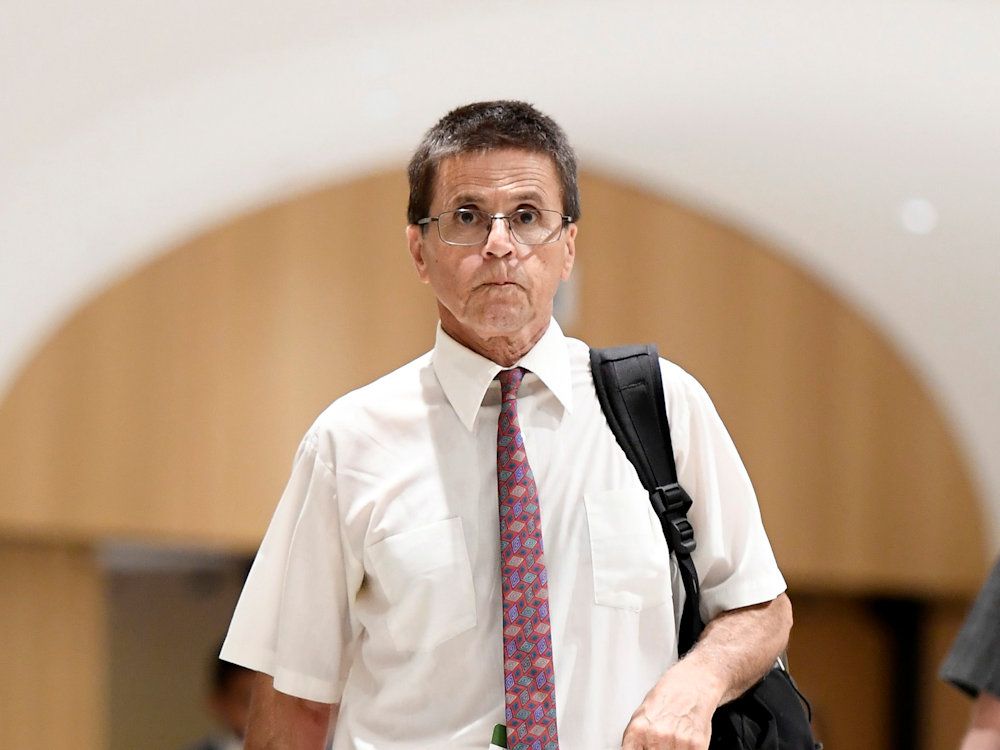
Convicted Terrorist to Teach at Canadian University, Sparks Outrage
Dr. Hassan Diab, a man convicted for his involvement in the 1980 Paris synagogue bombing that killed four people, including an Israeli national, is set to teach a sociology course at Carleton University in Ottawa, Canada. His appointment has sparked outrage, especially among the victims' families and Jewish organizations, who have condemned the decision. The story of Diab's past, his legal battles, and his eventual position as a university lecturer have ignited a firestorm of criticism.
In 1980, a bomb exploded outside the Rue Copernic synagogue in Paris, killing four innocent bystanders, including Israeli TV presenter Aliza Shagrir, and injuring 46 others. The attack, attributed to the Popular Front for the Liberation of Palestine (PFLP), was one of the most tragic terrorist acts in Europe at the time. Diab, a Lebanese-born Canadian, was arrested in connection to the bombing and later convicted in absentia by a French court. Despite being sentenced to life imprisonment for the murders, Diab continues to live in Canada, avoiding extradition due to a series of legal maneuvers.
Also Read:- Red Flag Warning Across Bay Area as Dry Winds Raise Fire Risk
- Tesla’s Sales Slump in Australia: Is the Electric Giant Losing Its Edge?
Diab's legal journey is filled with twists. He fled France in the years following the bombing and moved to Canada, where he later became embroiled in a prolonged extradition battle. For six years, he fought French authorities’ requests to bring him to trial. Finally, after being extradited in 2014, Diab spent two years under house arrest in France before fleeing back to Canada. In 2020, a French court, sitting in absentia, convicted him for the bombing, sentencing him to life in prison. Despite an international arrest warrant for his capture, Diab remains free in Canada.
Despite these legal entanglements, Diab was appointed to teach at Carleton University, where he will lead a course titled “Social Justice in Action.” The university's decision has drawn sharp criticism, particularly from the victims’ families. Hagai and Oron Shagrir, the sons of one of the victims, called the move “outrageous,” stating that an academic institution, meant to uphold values of equality and justice, should not provide a platform for a convicted murderer. They further condemned the university for hiring someone with such a heinous past, especially when the convicted terrorist targeted a Jewish institution.
The anger over Diab’s appointment has not been limited to the Shagrir family. Israeli consul general in Toronto, Idit Shamir, called the decision “unconscionable,” referring to the tragic loss of her friend’s mother, Aliza Shagrir, who was killed in the bombing. Shamir expressed disbelief that a Canadian university would reward someone convicted of such a heinous crime, and pointed out that every class taught by Diab dishonors the memories of the victims.
Jewish organizations, including B’nai Brith Canada, have also voiced their outrage. They have condemned Carleton University for allowing Diab to teach, calling it an insult to the victims and to Canadians who value justice and the rule of law. B’nai Brith even launched a petition to demand the immediate dismissal of Diab, urging the university to reconsider its decision. In response, Carleton University has defended its position, with the Department of Sociology and Anthropology expressing support for Diab, claiming he was “unjustly accused” and organizing events for him to present his version of the story. The department also previously worked to prevent his extradition, further fueling the controversy.
This saga raises important questions about accountability and the responsibility of educational institutions. Should a convicted terrorist, with a life sentence hanging over him, be allowed to teach at a respected academic institution? And what message does it send when a university continues to employ someone whose actions led to the deaths of innocent people? The story of Hassan Diab is far from over, and it is clear that his presence at Carleton University will remain a point of contention for years to come.
Read More:

0 Comments